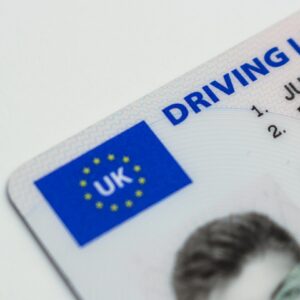If you’ve ever Googled “How much does an accountant cost?”, you’ve probably noticed one thing: it’s not a simple answer.
Some charge by the hour, others bundle services into monthly packages, and a few seem to pull their prices out of thin air. So, how do you know what’s fair? And, more importantly, what’s worth paying for?
Here’s what you need to know to make the right call for your business and your budget.
How much do accountants cost?
There’s a wide range depending on where you are, the services you need and how your accountant charges.
Here’s a rough guide to typical prices:
- Director’s tax returns: £250 to £1000 per return
- Limited company accounts and tax return: £800 to £2000 per year (depending on the size of the business)
- General bookkeeping services: £25 to £60 per hour
- Maintaining business accounts: £60 to £600+ per month
**Please note: these are averages. Small, local firms might charge less, while larger or specialised firms could charge more.
How much do different accountancy services cost?
Not all accountants charge the same way. Here are the main pricing models you’ll come across:
- Hourly rates: Expect to pay £50 to £250+ an hour, depending on experience and the complexity of the work.
- Fixed-fee packages: Many accountants offer monthly packages for set services (like tax returns, payroll or year-end accounts).
- Pay-as-you-go: You’ll usually get a flat fee for one-off jobs like company formation or a single tax return.
- Tiered pricing: As your business grows, some accountants offer scaled packages that grow with you.
If you want flexibility, pay-as-you-go works well. Whereas, if you want predictability and ongoing support, fixed monthly fees are the way to go.
What affects how much an accountant charges?
As you’re probably catching on by now, there’s no one-size-fits-all price tag when it comes to accounting. However, here are the main factors that will influence cost:
- Business structure: Sole traders usually pay less than limited companies because the accounts are simpler.
- Turnover and complexity: The higher your income and the more transactions you have, the more work your accountant needs to do.
- Software and systems: If you already use cloud accounting software like Xero or QuickBooks, it might save time (and reduce your fees).
- Location: Accountants in London or other major cities often charge more than those in smaller towns.
- Scope of work: The more tasks you hand over, like payroll, VAT and reporting, the higher the cost.
What do accountants actually do?
It’s easy to look at a few hundred pounds for a tax return and think, “Can’t I just do this myself?” Here’s what you’re really paying for:
- Time saved: No more wrestling with HMRC forms or trying to decode tax rules.
- Peace of mind: Less risk of errors, fines or missed deadlines.
- Tax savings: Accountants know how to reduce your tax bill legally. That alone can often cover their fees.
- Financial clarity: Good accountants help you understand your numbers, spot problems early, and make better decisions.
In short, you’re not just buying a service. You’re buying back your time, headspace and financial confidence.
Is it worth the cost?
If you’re a sole trader with a simple setup, you might get by with DIY accounting or once-a-year support. But if you’re running a limited company, managing payroll, or growing quickly, then a good accountant isn’t just a smart investment – it’s essential. In most cases, the money you save on tax, penalties, and wasted time will far outweigh what they charge.
Hopefully, now you understand why pricing isn’t so transparent when it comes to accounting and that the real question isn’t “How much does an accountant cost?” but rather “How much could it cost you not to have one?”
Ready to stop guessing and start saving? Get in touch with us today to make sure that your business is set up for success.



